Filter by...
Reset all
Publications (203)

While multinational corporations (MNCs) make up only 1.9% of firms operating in Uganda, they are overrepresented among tax holiday beneficiaries. New estimates reveal that Uganda’s revenue losses due to these tax expenditures peaked at USD 42 million in 2020.A new dataset allows for the first...

– A closer look
Terrorist violence has a profound influence on social attitudes, including trust in governmental institutions and attitudes towards migration and civil freedoms. Acts of terrorism cause citizens to experience a complex range of negative emotions, including anxiety, anger, sorrow, and a sense of...
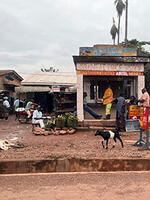
– Combining tax data and Google Street View images
The issue of tax non-compliance among businesses is pervasive in many developing economies, including Uganda. But to what extent do businesses comply with their tax obligations in the capital city, Kampala? Can the local environment and geographic information help predict the risk of tax non...

Despite the rapid expansion of social protection across the Global South in recent decades, the ILO (2021: 19) estimates that more than half of the global population still have no access to any form of protection against poverty vulnerability and social exclusion. Globally, the share of aid that...

The 1980s are sometimes referred to as the ‘lost decade’ for development. Many countries in the Global South experienced weak or no improvement in poverty indicators. Our projections are equally dire for the current decade and prospects for the SDGs unless action is taken. We project a decade of...
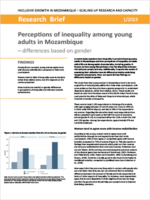
– Differences based on gender
A recent study examines how inequality is perceived among young adults in Mozambique and how perceptions of inequality correlate with different demographic characteristics, including gender. It focuses on how young Mozambicans view the disparities between rich and poor people and why. Additionally...

Zambia is putting in place fiscal measures to improve the efficient collection of domestic revenue to finance social and public infrastructure. This analysis shows how much more revenue can be accumulated if tax evasion was at the bare minimum. Tax gap describes the share of the potential tax...

Along with several other African countries, Zambia has introduced a withholding system for value-added tax (VAT) to improve revenue collection and compliance. Even though VAT withholding policies are applied in several countries in Africa and similar industry-specific policies in Europe, empirical...
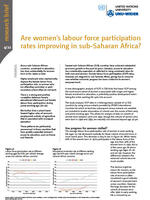
Several sub-Saharan African (SSA) countries have achieved substantial economic growth in the past 30 years. Likewise, access to education has considerably expanded, as reflected in rising enrolment rates for both men and women. Female labour force participation (FLFP) rates, however, are stagnant in...

Governments in low- and middle-income countries face a trade-off between raising tax revenue to strengthen social protection and creating incentives to enter formal employment. In developed countries so called in-work transfers (i.e., social benefits paid upon condition of being employed) have been...

The volume, Social Mobility in Developing Countries: Concepts, Methods, and Determinants, brings together leading scholars from a range of social science disciplines working on a variety of issues related to social mobility. Three motivations guide this joint effort: identifying important knowledge...

– Are moderate increases more sustainable?
Domestic revenue mobilization (DRM) — the generation of government revenue from domestic tax and non-tax resources — plays a crucial role in building an enduring financing architecture for sustainable development. This brief summarizes the dynamics of DRM trends across the past four decades...
The volume, Social Mobility in Developing Countries: Concepts, Methods and Determinants, brings together leading scholars from several disciplines to advance research practice on social mobility. Three sets of motivations guide this joint effort: identifying important knowledge gaps; bringing...
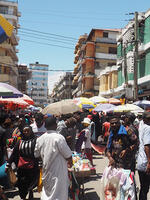
– Evidence from risk-based tax examinations
Risk-based approaches are becoming commonplace for tax authorities as a tool for enforcement. Improvements in technology, technological adoption and in some cases machine learning, hold great promise for finding the taxpayers who are most likely to avoid taxes, thus improving the detection of non...

– Dinâmica da transição ensino-emprego dos finalistas do ETP em Moçambique
O Ensino Técnico-Profissional (ETP) é frequentemente visto como uma solução milagrosa que resolve questões que vão desde o desemprego juvenil até à mudança estrutural relacionada com o mercado de trabalho. Isto é particularmente verdade para os países em desenvolvimento com um ensino básico...

– The dynamics of school-to-work transition of TVET graduates in Mozambique
Technical and Vocational Education and Training (TVET) is often seen as a silver bullet resolving issues ranging from youth unemployment to labour market-related structural change. This is particularly true for developing countries with deficient basic education and high numbers of youth seeking to...
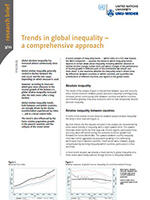
Recent analysis of inequality trends — which relies on the World Income Inequality Database (WIID) Companion, a pair of rich new datasets — assesses the extent to which inequality trends depend on certain views about inequality, including whether absolute or relative income changes matter more and...

– Does it make a difference?
How could countries in the Global South develop their tax systems further and improve compliance? This analysis shows how two tax administration interventions impacted the number of small business taxpayers and presumptive tax revenues in Uganda. One-stop-shops — where citizens could register for...
What was the impact on earnings of the economic crisis caused by the first wave of the COVID-19 pandemic in Ecuador? To what extent did social assistance programmes compensate household income losses? ECUAMOD, the tax-benefit microsimulation model for Ecuador, helps to assess the distributional...
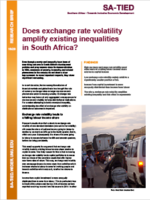
Even though poverty and inequality have been of overriding concern in South Africa’s development policies and programmes since its democratization in 1994, measures of poverty, inequality, and related phenomena in the country do not show a clear improvement. In some important respects, they show...
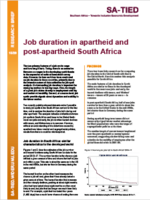
The two primary features of a job are its wage and how long it lasts. Today, there is an extensive literature on wages in the developing world thanks to the expansion of national household survey data. However, far less work has been conducted on job duration in these countries, primarily due to the...

– Natural gas as a key
Plastics are universal and integrated into different sectors of the economy. Industrial policy requires countries to look at moving up the value chain and producing progressively more sophisticated products to contribute to improved economic development. The input materials that are used for...

– Blueprint, experiences, and outcomes
East Asia’s successful experience in accelerating the process of industrial development with SEZs paved way for the use of SEZs as policy instruments in Africa. In southern Africa, Zambia and South Africa instituted SEZs in legal and institutional frameworks in the 2000s as mechanisms for catalysing...

– Promises and pitfalls of tradable services in Africa
There is growing recognition around the world that tradable services can play a valuable role in economic development. Africa is no exception, with the need for multiple routes to growth, particularly vis-à-vis the COVID-19 pandemic. Tradable services — business activities that can be exported or...

– The distribution of household wealth in South Africa
South Africa is, by most contemporary measures, the most unequal country in the world. Yet, relatively little attention has been given to country’s wealth inequality. It is crucial to accurately measure the concentration of wealth inequality over time, identify the root causes of the current...
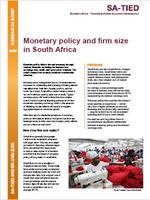
Monetary policy affects the real economy through various channels, including the interest rate, exchange rate, credit, and asset price channels. The credit channel has recently received considerable attention. Small firms are more sensitive to changes in interest rates. Small firms which are...
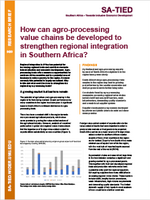
Regional integration in Africa has potential for increasing regional trade and contribute towards industrialization and economic development. Agro-processing trade offers numerous opportunities for southern Africa countries and is a potential area of business to reduce poverty in the region. However...

It is important to understand how working conditions faced by workers in Vietnamese SMEs affect levels of compensation. This is salient given the scope of SMEs in Vietnam — they contribute to approximately 45% of the country’s GDP and 60% of its employment. There are no clearly defined financial or...

– SMEs and access to credit
During the last three decades Vietnam has undergone a considerable economic transformation. However, little research has considered the role that financial reform has played in the development of small and medium size enterprises (SMEs). A focus on the financing of SMEs is of particular importance...
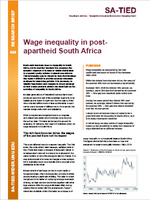
Much work has been done on inequality in South Africa, but to date the literature that assesses the dynamic response of income or wealth distribution to economic policy actions is almost non-existent. This information gap is caused by data shortcomings that make it difficult to provide accurate...
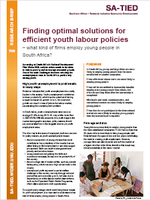
– What kind of firms employ young people in South Africa?
According to South Africa’s National Development Plan Vision 2030, serious action needs to be taken to reduce poverty and encourage economic growth. One of the main challenges involves reducing the unemployment rates in South Africa, particularly among youth. In South Africa, young and large firms...
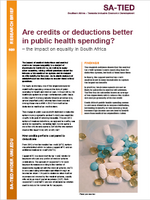
– The impact on equality in South Africa
The impact of medical deductions and medical credits on income inequality is a subject of discussion in South Africa, as well as in many other countries, raising critical questions about the fairness of the medical tax system and the impact on affordability for the poor. An in-depth analysis of...
Displaying 32 of 203 results
 Join the network
Join the network